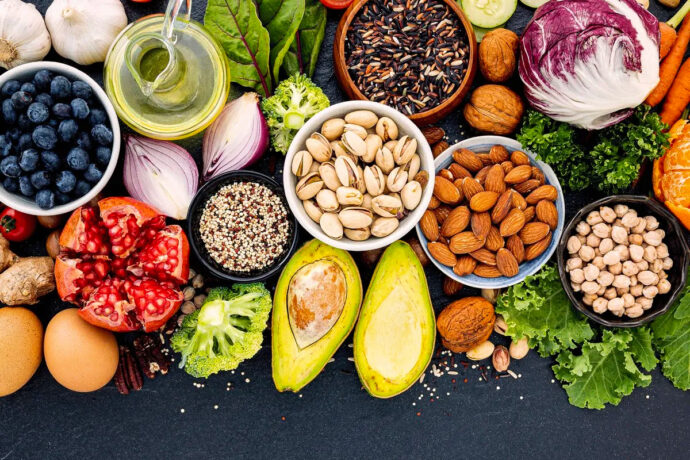
Ulcerative colitis, an inflammatory bowel disease, can significantly impact the digestive tract, leading to discomfort and complications. Managing this condition involves adopting a diet that supports digestive health by eliminating trigger foods. In this article, we’ll explore five foods to avoid for better ulcerative colitis management.
1. Butter or Margarine:
- Foods with linoleic acid, a primary omega-6 fatty acid, can contribute to inflammation in the intestines.
- Butter, high in saturated fat and linoleic acid, is best avoided, and it’s advisable to opt for olive oil and fish oil supplements.
- Margarine, often made with oils high in omega-6, should be replaced with healthier alternatives to support digestive well-being.
2. Carbonated Beverages:
- Carbonated drinks contain carbonic acid, known to irritate the entire digestive tract.
- Soda, seltzer, and beer can exacerbate colitis symptoms during flare-ups.
- Opt for plain water, fruit-enhanced water, and herbal teas to prevent gas and bloating associated with carbonated beverages.
3. Caffeine:
- Coffee’s acidity and caffeine content stimulate rapid movement in the large intestines, potentially worsening colitis-related diarrhea.
- Caffeine is also present in sodas and certain teas, making it advisable to avoid these drinks during inflammatory bowel disease (IBD) flare-ups.
- Choosing decaffeinated alternatives helps minimize the impact on intestinal motility.
4. Corn:
- High-fiber foods like whole grains, including corn, can increase intestinal motility.
- Corn, a challenging grain to digest, may irritate the large intestine’s lining, especially in the form of popcorn.
- Consider opting for low-fiber alternatives to ease the strain on the digestive system during colitis episodes.
5. Dairy:
- While dairy is often considered soothing for the digestive tract, many IBD patients are lactose intolerant.
- Lactose, present in milk, cheese, and yogurt, can cause abdominal pain and diarrhea in individuals with compromised digestive systems.
- Choose non-dairy alternatives and keep a journal to identify specific dairy products that negatively impact your symptoms.
Conclusion: Managing ulcerative colitis involves making mindful dietary choices. Avoiding trigger foods such as butter, carbonated beverages, caffeine, corn, and dairy can contribute to better symptom control and overall digestive well-being. Individuals with colitis should consult healthcare professionals for personalized dietary recommendations and ongoing management strategies to enhance their quality of life.



